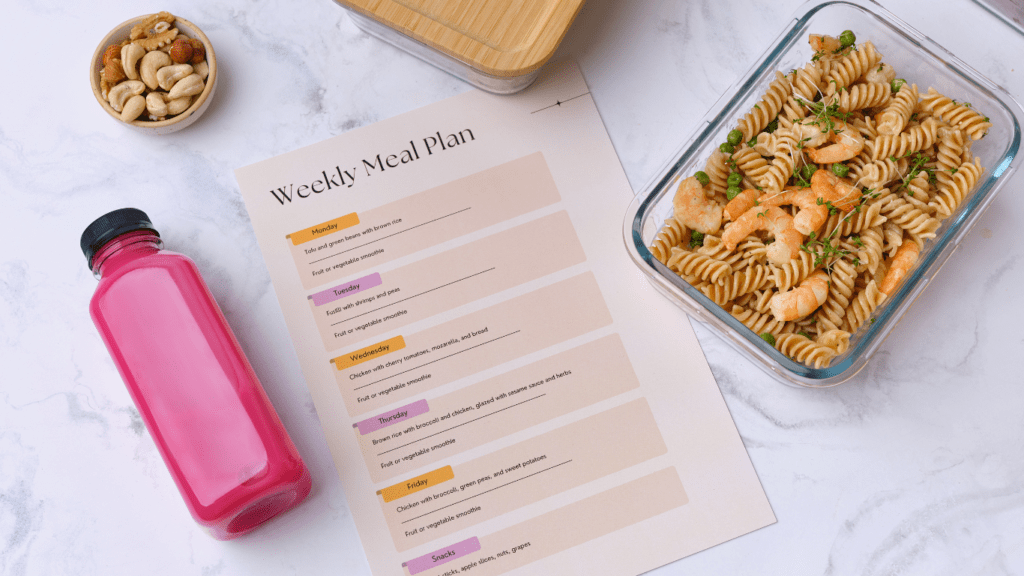Understanding the Balancing Act: Maintaining a Healthy Diet While Training
Maintaining a healthy diet while training involves understanding core nutritional principles and making dietary adjustments based on personal goals.
Nutrition and Exercise: The Core Principles
Proper nutrition is essential for maximizing performance and recovery in any training regimen. Macronutrients, including carbohydrates, proteins, and fats, play specific roles in energy production and muscle repair. For example:
- Carbohydrates: Provide energy for high-intensity workouts.
- Proteins: Aid muscle repair and growth.
- Fats: Support long-term energy needs and hormone production.
Hydration is equally vital. Dehydration can impair performance and recovery, so, I aim to drink water consistently throughout the day, especially before and after workouts.
Vitamins and minerals should also be included in the diet for optimal body function. Foods like leafy greens, nuts, seeds, and lean meats provide necessary micronutrients.
Personal Goals and Dietary Adjustments
Individual goals dictate specific dietary needs. For muscle gain, increasing protein intake supports muscle synthesis. Sources include lean meats, dairy, beans, and legumes.
For weight loss, balancing calorie intake with expenditure becomes crucial. Reducing processed foods and focusing on nutrient-dense options helps in this regard.
Endurance athletes, in particular, benefit from higher carbohydrate intake to sustain prolonged activity. Foods like whole grains, fruits, and vegetables provide the necessary fuel. Conversely, if the goal is general fitness, a balanced intake of all macronutrients suffices.
Monitoring and adjusting caloric intake ensures that I meet my body’s demands. Using apps or consulting with a nutritionist helps track and refine dietary choices based on feedback and progress.
Essential Nutrients for Athletes and Active Individuals
Athletes and active individuals need a balanced intake of essential nutrients to support their training routines and recovery processes.
Macronutrients: Carbs, Proteins, and Fats
Carbohydrates provide the primary energy source for high-intensity workouts. Examples include whole grains, fruits, and vegetables. Complex carbs, such as those from quinoa and brown rice, release energy steadily.
- Proteins are crucial for muscle repair and growth.
- Lean meats, legumes, and dairy products supply high-quality protein.
- Aim for a protein intake of about 1.2-2.0 grams per kilogram of body weight daily, depending on training intensity.
- Fats supply dense energy and support hormone production.
- Healthy fat sources include avocados, nuts, and olive oil.
- Choose unsaturated fats over trans fats and saturated fats for optimal health benefits.
Micronutrients: Vitamins and Minerals
Vitamins play various roles in energy metabolism, immune function, and overall well-being. Vitamin B12, found in meat and dairy, aids in red blood cell production and neurological function. Vitamin D, synthesized from sunlight and found in fatty fish, supports bone health.
Minerals like calcium and iron are vital. Calcium, found in dairy products and leafy greens, strengthens bones. Iron, present in red meat and beans, is essential for oxygen transport in the blood.
To ensure a well-rounded diet, incorporate a variety of nutrient-dense foods, monitor intake, and adjust based on training demands and personal goals.
Planning Meals and Snacks Around Training Schedules

Balancing nutrition with training schedules enhances performance and accelerates recovery. Properly timed meals and snacks ensure sustained energy levels during workouts.
Pre-Workout Nutrition
Pre-workout nutrition prepares the body for intense activity. Consuming a balanced meal 2-3 hours before training is ideal. This meal should include complex carbohydrates like whole grains or brown rice to provide lasting energy.
Incorporate lean proteins such as chicken, fish, or plant-based sources to assist muscle maintenance. Healthy fats, found in avocados or nuts, also contribute to sustained energy release.
Eating a light snack 30-60 minutes before exercising can prevent hunger. Good options include a banana with almond butter, a smoothie with fruits and protein powder, or a low-fat yogurt with berries.
Post-Workout Recovery Foods
Post-workout nutrition is crucial for muscle repair and recovery. Consuming a meal within 45 minutes after training maximizes glycogen replenishment and muscle repair.
The meal should combine fast-digesting carbohydrates and high-quality protein. Examples are a grilled chicken with quinoa salad or a protein shake with banana and oats.
Hydrating immediately after exercise helps restore fluids lost during workouts. Drinking water or an electrolyte-replenishing beverage can aid recovery. Specialty drinks containing electrolytes, such as sports drinks, are beneficial after prolonged, intense workouts.
Regularly incorporating these strategies into your routine ensures the body remains fueled and ready for exercise. Proper meal timing around workout schedules contributes significantly to overall athletic performance and recovery.
Common Challenges and Practical Solutions
Navigating the intricate relationship between diet and training can be daunting. Here, I outline common challenges and provide practical solutions to maintain a balanced approach.
Balancing Calories with Exercise Intensity
Matching calorie intake with exercise intensity requires careful planning. High-intensity workouts demand more energy, which means consuming additional calories to avoid fatigue and muscle breakdown.
Monitoring calorie intake using food tracking apps helps maintain this balance. For instance, if my workout regimen includes high-intensity interval training (HIIT) sessions, I increase my carbohydrate intake to ensure sufficient energy.
Conversely, on rest days, I reduce my calorie consumption.
Managing Hydration and Electrolyte Balance
Maintaining proper hydration and electrolyte balance is vital for optimal performance. Dehydration impairs performance and increases the risk of cramps and fatigue.
I measure my fluid loss by weighing myself before and after workouts; this data helps determine how much fluid I need to replace.
Consuming electrolyte-rich drinks, especially during prolonged exercise, replenishes essential minerals like sodium, potassium, and magnesium.
For example, I drink water with added electrolytes or sports drinks during endurance activities to prevent imbalances.
Balancing a healthy diet while training involves careful monitoring and adjustments. By focusing on calorie intake and hydration, I support my body’s needs and enhance my athletic performance.



